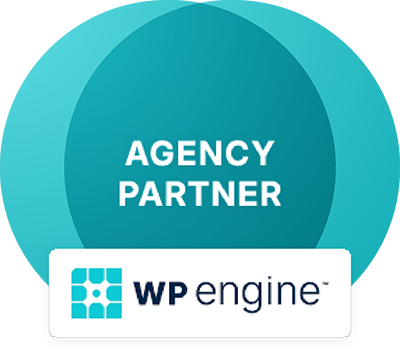




Top 10 Reasons Why Your Business Needs a Website
In today’s digital age, having a website is no longer a luxury but a necessity for businesses of all sizes. Whether you’re a small startup or an established company, a website is a powerful tool that can help you reach more customers, build credibility, and grow your business. At Masthead Technology, we understand the importance of a strong online presence. Here are the top reasons why your business needs a website.
1. Establishes Credibility
Professionalism and Trust:
A well-designed website makes your business look professional and trustworthy. Potential customers are more likely to trust a company with an online presence than one without. In a digital-first world, consumers often research businesses online before making a purchase decision. A website serves as your business card, showcasing your products, services, and values.
Showcase Your Expertise:
Your website is a platform to demonstrate your expertise and authority in your industry. Through blog posts, case studies, testimonials, and portfolios, you can show potential customers why they should choose you over your competitors.
2. Increases Visibility
Reach a Global Audience:
Unlike a physical storefront, a website allows you to reach a global audience. This means you can attract customers from different geographical locations, expanding your market reach beyond your local area.
SEO Benefits:
A website optimized for search engines can improve your visibility in search results. By appearing on the first page of search engine results, you can attract more organic traffic to your site. Effective SEO strategies can increase your chances of being found by potential customers searching for your products or services.
3. Provides 24/7 Accessibility
Round-the-Clock Availability:
A website is accessible 24/7, meaning customers can learn about your business, browse your products, and make purchases at any time. This round-the-clock availability can lead to increased sales and customer satisfaction.
Customer Support:
With features like live chat, FAQs, and contact forms, your website can provide instant customer support, answering queries and resolving issues even outside of business hours.
4. Enhances Customer Engagement
Interactive Features:
A website allows you to engage with your customers through interactive features such as blogs, forums, and social media integration. These features can help build a community around your brand, fostering loyalty and repeat business.
Personalized Experience:
With tools like customer profiles and personalized recommendations, you can tailor the user experience to individual preferences, enhancing customer satisfaction and encouraging repeat visits.
5. Supports Marketing Efforts
Digital Marketing Integration:
Your website is the cornerstone of your digital marketing efforts. It integrates seamlessly with social media, email marketing, and other online advertising strategies to create a cohesive marketing plan.
Analytics and Insights:
A website provides valuable data and insights into customer behavior, preferences, and demographics. These analytics can help you refine your marketing strategies, improve customer targeting, and increase ROI.
6. Drives Sales and Revenue
E-Commerce Capabilities:
For businesses that sell products, an e-commerce-enabled website allows you to reach a broader audience and increase sales. Customers can browse products, read reviews, and make purchases all from the comfort of their homes.
Upselling and Cross-Selling:
Your website can highlight related products and special offers, encouraging customers to spend more. Techniques like upselling and cross-selling can significantly boost your revenue.
7. Enhances Brand Identity
Consistent Branding:
A website allows you to showcase your brand identity consistently across all pages. From your logo and color scheme to your messaging and tone, a website helps reinforce your brand in the minds of your customers.
Storytelling:
Your website is a platform to tell your brand’s story. By sharing your mission, vision, and values, you can connect with customers on a deeper level, fostering loyalty and emotional engagement.
8. Competitive Advantage
Stand Out from Competitors:
In today’s market, not having a website can put you at a significant disadvantage. A professional website sets you apart from competitors who may still rely solely on traditional marketing methods.
Stay Current:
A website allows you to stay current with industry trends and customer expectations. By regularly updating your site with new content, products, and features, you show that your business is dynamic and forward-thinking.
9. Cost-Effective Marketing
Lower Advertising Costs:
Compared to traditional advertising methods like print, radio, or TV, maintaining a website is relatively inexpensive. Digital marketing campaigns can be more cost-effective and have a broader reach.
Long-Term Investment:
A website is a long-term investment that can continually attract and convert customers. With regular updates and SEO efforts, a website can provide a high return on investment over time.
10. Facilitates Business Growth
Scalability:
As your business grows, your website can grow with you. You can add new products, services, and features without the constraints of physical space.
New Opportunities:
A website can open up new business opportunities, such as partnerships, collaborations, and new revenue streams. Being online can also attract media attention and new customer segments.
Conclusion
In today’s digital era, a website is essential for any business looking to establish credibility, increase visibility, and drive growth. At Masthead Technology, we specialize in creating custom websites that meet the unique needs of our clients. Contact us today to learn how we can help you build a website that enhances your online presence and supports your business goals.
FAQs
Why is having a website important for a small business? A website enhances credibility, reaches a wider audience, provides 24/7 accessibility, and supports marketing efforts, making it crucial for small business growth.
How does a website improve customer engagement? A website with interactive features, personalized experiences, and instant support options keeps customers engaged and encourages repeat visits.
Can a website help increase sales? Yes, an e-commerce-enabled website allows you to reach a broader audience, highlight related products, and facilitate online purchases, boosting sales and revenue.
How does a website support digital marketing efforts? A website integrates with digital marketing strategies, provides valuable customer insights, and helps create a cohesive marketing plan to reach your target audience.
What are the cost benefits of having a website? Maintaining a website is relatively inexpensive compared to traditional advertising methods, and it serves as a long-term investment with a high return over time.



